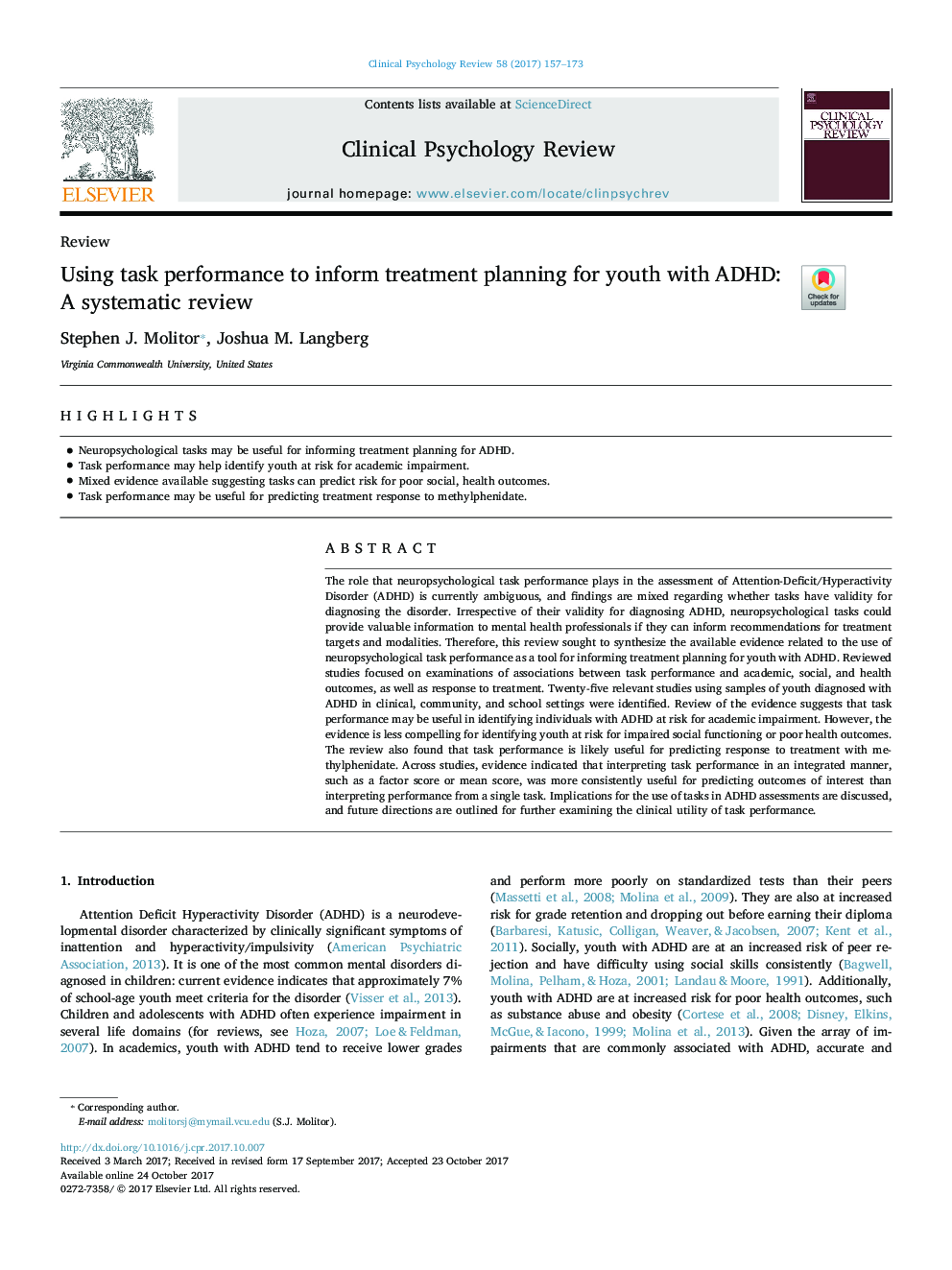| Article ID | Journal | Published Year | Pages | File Type |
|---|---|---|---|---|
| 7263663 | Clinical Psychology Review | 2017 | 17 Pages |
Abstract
The role that neuropsychological task performance plays in the assessment of Attention-Deficit/Hyperactivity Disorder (ADHD) is currently ambiguous, and findings are mixed regarding whether tasks have validity for diagnosing the disorder. Irrespective of their validity for diagnosing ADHD, neuropsychological tasks could provide valuable information to mental health professionals if they can inform recommendations for treatment targets and modalities. Therefore, this review sought to synthesize the available evidence related to the use of neuropsychological task performance as a tool for informing treatment planning for youth with ADHD. Reviewed studies focused on examinations of associations between task performance and academic, social, and health outcomes, as well as response to treatment. Twenty-five relevant studies using samples of youth diagnosed with ADHD in clinical, community, and school settings were identified. Review of the evidence suggests that task performance may be useful in identifying individuals with ADHD at risk for academic impairment. However, the evidence is less compelling for identifying youth at risk for impaired social functioning or poor health outcomes. The review also found that task performance is likely useful for predicting response to treatment with methylphenidate. Across studies, evidence indicated that interpreting task performance in an integrated manner, such as a factor score or mean score, was more consistently useful for predicting outcomes of interest than interpreting performance from a single task. Implications for the use of tasks in ADHD assessments are discussed, and future directions are outlined for further examining the clinical utility of task performance.
Related Topics
Health Sciences
Medicine and Dentistry
Psychiatry and Mental Health
Authors
Stephen J. Molitor, Joshua M. Langberg,
